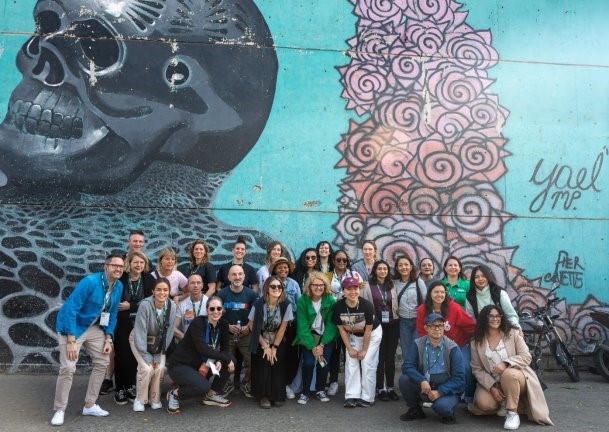Representatives from 15 countries met in Mexico this week for Pact Network Connect 2025, a three-day programme focussed on addressing the issue of our broken food systems, and the spiralling environmental cost of plastic pollution and waste.
Convened by global environmental action NGO WRAP, Pact Network Connect 2025 was the first time the two networks – 13 international Plastics Pacts run in conjunction with the Ellen MacArthur Foundation – and 11 Food Pacts met as one to share experiences and strategies to strengthen collaborative efforts on the two environmental crises.
The Pacts represent collaborative action initiatives formed in country by private and public sector organisations, charities and NGOs. Representatives from the Pact Secretariats joined investors and philanthropic organisations to co-design solutions to key food and plastics triggers.
Focus was on generating practical steps and actions to tackle plastics pollution within the 19 countries comprising the Plastics Pact Network – and share more widely, and address food waste and loss in the 10 countries encompassing the first Food Pact Network.
Harriet Lamb, CEO, WRAP, said: “The numerous Pacts are the engine rooms driving forward a new circular economy for plastics and food. They give me hope that we can correct the failures of our food and plastic systems.
“They show that ahead of securing global inter-governmental agreements at scale, companies, ngos and governments can get behind voluntary action as an agile and effective front runner along the road to transformation.
“We’re delighted to be in Mexico, bringing together leaders from the food and plastics Pacts for the first ever joint global meeting to share solutions and accelerate change.”
Pact Network Connect 2025 built on the learnings and progress achieved in the first Plastic Pact Network meeting, held in South Africa in 2024 inspiring the move to bring together both Food and Plastics Pacts to amplify impact. The Plastics Pact Network meeting had an added sense of urgency this year, given the lack of agreement on key elements for a global treaty to end plastic pollution at INC5 negotiations in Busan 2024.
Marta Longhurst, Pacts and Field-building Lead Ellen MacArthur Foundation, said: “The Plastics Pacts have proved that such a network can deliver real impact towards eliminating plastic waste and pollution.
“Thanks to Plastics Pacts, tens of billions of problematic or unnecessary plastic items have been eliminated; design for reusability, recyclability, and composability in practice and at scale has increased by 23%; and incorporation of recycled content back into packaging has increased by 44%.
“We are pleased to see the tangible impact of the Plastics Pacts, and to see this knowledge shared and applied to other sectors to accelerate the transition to a circular economy worldwide.”
The Plastics Pact Network is a global coordinated response to the hazards plastics pose to people and the planet. Managed through a partnership between WRAP and the Ellen MacArthur Foundation, in just six years the Plastic Pacts have led work tackling pollution and delivering impact on national and global scales.
The Network includes over 900 local and global organisations across a 19-country membership. Its members have eliminated more than 360,000 tonnes of problematic and unnecessary plastics and increased recycled content in their packaging by 44% – reducing virgin plastic by 2.2 million tonnes by 2022. All Plastics Pacts align in a common vision to create a circular economy for plastics and eliminate waste and pollution.
Alejandra Kopaitic, Directora Consumo y Producción Sustentable y Pacto Chileno de los Plásticos, said: “Pact Network Connect is a key event when many countries can share experiences, foster regional collaboration, and strengthen our global partnerships.
“It will enrich the Chilean Plastics Pact as part of this international network committed to systemic change. We are here to listen, learn, and collaborate, while showcasing the work we are doing in Chile and aligning our goals with international experience and best practices.”
Ninel Escobar, Director of Climate Change WWF Mexico, said: “In México, between 38% and 58% of plastic waste is mismanaged. Resolving this problem requires us to work along the whole life cycle of plastic, using a systemic approach. We are pleased to join our Pact partners at Pact Network Connect to share our experiences of resolving these complex problems.”
The Food Pact Network connects collaborative action initiatives within individual countries to a global community dedicated to reducing food loss and waste. This is the first time the group has joined forces in person as the Food Pact Network, and through the universal adoption of the principles of Target-Measure-Act the Pacts are changing how food is produced and consumed to support the UN Sustainable Development Goal 12.3 to halve global food waste by 2030.


